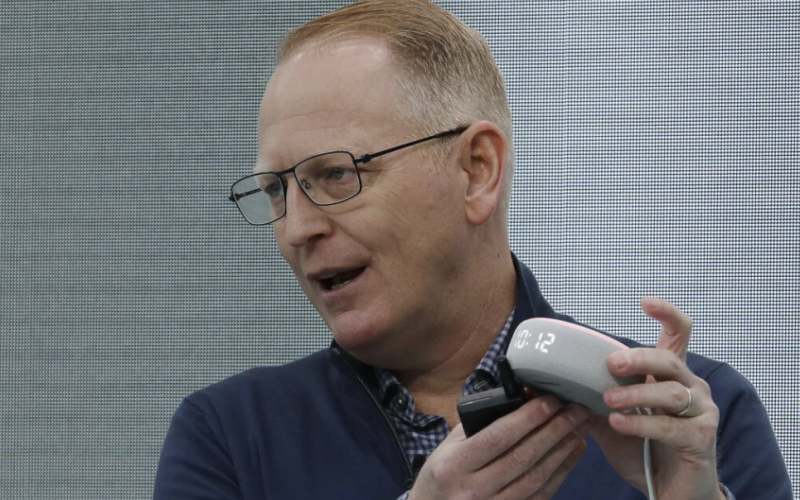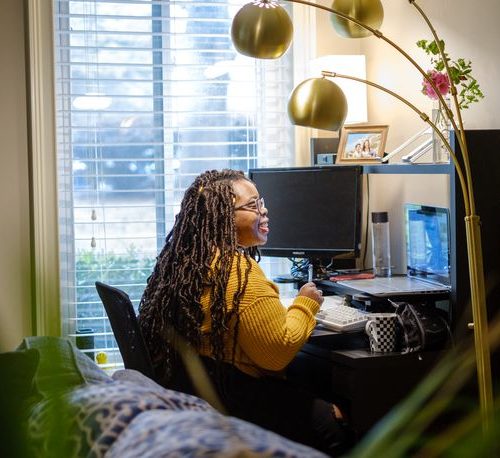By TOM MURPHY and ANNE D’INNOCENZIO, Associated Press
Troy Warren for CNT #EditorsPicks #Health
If there is no doctor in the house, Amazon’s Alexa will soon be able to summon one.
Amazon and telemedicine provider Teladoc Health are starting a voice-activated virtual care program that lets customers get medical help without picking up their phones.
The service, for health issues that aren’t emergencies, will be available around the clock on Amazon’s Echo devices. Customers can tell the voice assistant Alexa that they want to talk to a doctor, and that will prompt a call back on the device from a Teladoc physician.
The program, announced Monday, marks Amazon’s latest expansion into health care and another push by the retail giant into a form of care that grew rapidly during the COVID-19 pandemic.
“Telehealth now is something that patients have gotten used to and may come to expect as an option for their care,” said Lori Uscher-Pines, a senior policy researcher with Rand Corp. “(Before) the pandemic, there might not have been this much awareness that this was a service that was available.”
Amazon already dispenses prescription drugs and is expanding an Amazon Care program it launched in 2019 that offers telemedicine visits with an option to send a care provider to the patient if they need an in-person visit.
The company’s latest health care expansion comes as several competitors including Walmart and the drugstore chains CVS and Walgreens also beef up their medical offerings. They are adding care clinics or virtual programs to make it easier for patients to find regular help in the fragmented U.S. health care system.
Insurers and employers that pay medical bills are pushing for this as a way to improve health and cut down on hospital stays or other big medical expenses.
“Health care is a huge industry of enormous value, and it is ripe for disruption,” said Neil Saunders, managing director of GlobalData Retail. “And Amazon views itself as a disruptor.”
Some hospitals already use Alexa as a voice assistant in patient rooms. In Great Britain, Alexa works with that country’s National Health Service to help answer medical questions with advice from the country’s official website.
The service announced Monday will be available for customers who create an Alexa voice ID. After telling the voice assistant that they need to talk to a doctor, people will be connected to a Teladoc call center and then get a call back from a physician.
The calls are audio-only for now, but the companies say they expect to add video soon. In some cases, doctors will be able to prescribe medications.
Customers can get a call back the same day, but that may depend on the availability of doctors in the state where the patient is located, Teladoc spokesman Chris Savarese said. He noted that the ongoing pandemic may lead to longer wait times.
The cost for a visit can vary depend on the patient’s coverage. Without insurance, the calls will cost $75.
Savarese said Amazon will not be able to access, record or store the content of the ensuing call.
Amazon is moving deeper into health care as other growth engines slow. In its most recent quarter, the Seattle-based company reported that its online retail business dropped 1%.
Kate McCarthy, senior research director at research firm Gartner, sees room for Amazon to expand beyond simple doctor calls. She noted that the company’s health care segment in its cloud computing division is aimed at coming up with new services and health care products.
McCarthy said she could see Amazon eventually helping to monitor patients that go home after a hospital stay, using Alexa and sensors to check how often they flush the toilet or open the refrigerator.
With its prescription services, Amazon hasn’t bit off meaningful share from its drugstore rivals, but McCarthy noted it could become a legitimate player.
“There isn’t one kind of magic market entrance,” she added “It will be a combination of things.”
Telemedicine in general grew rapidly when the pandemic first hit the United States and patients wanted to hunker down at home instead of visiting the doctor’s office.
Virtual visits have since leveled off a bit as office visits have widely resumed. But Uscher-Pines said research shows that patients remain interested.
Many want telemedicine available when they need its convenience, not as a replacement for in-person care.
“Most people don’t want that to cannibalize their in-person care,” she said. “They still want those options.”


































